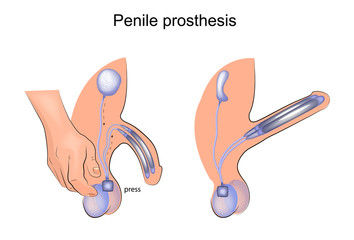Overview
Imagine a transformative surgery offering transgender men a chance to feel complete with a donated penile transplant. Like building a new bridge, this complex procedure, known as transgender surgery, connects carefully chosen parts to the patient. However, challenges arise in finding the right donor and ensuring the body accepts the transplant.
Penile transplant for transgender individuals, specifically female-to-male (FTM), involves the surgical procedure of phalloplasty. This procedure uses grafted skin, typically from the forearm, thigh, back, or abdomen, to construct a neopenis. However, the neopenis cannot achieve an erection on its own. After a recovery period, a penile implant can be inserted to allow for sexual function.

Transgender men seek penile transplants for enhanced masculinity and sexual experiences. While data on surgeries is limited due to complications, an NCBI research paper notes only 5% reported having the procedure. Interestingly, 19% express interest in metoidioplasty, and 25% in phalloplasty in the future.
Now the question might be coming to your mind “Does it really work?”
The answer to this is, yes it does work.
FTM penile surgery is the last step after various bottom surgeries. While it comes with high complications, a successful procedure can greatly enhance satisfaction in penetrative intercourse.
Your health is too important to ignore – schedule your appointment now.
As it is a new procedure, you may have concerns regarding the safety of the procedure, isn't it?
Here are the details!
How Safe is Transgender Penile Transplant?
Transgender penile transplant, while offering a potential pathway for physical alignment, is still in its early stages and raises considerable safety concerns. Here's a breakdown of the current picture:
Safety Challenges:
- Limited data: With only a handful of documented successful cases, long-term safety data and success rates remain uncertain.
- Rejection risk: The recipient's body may reject the transplanted tissue, requiring lifelong immunosuppressive medication with its own potential side effects and health risks.
- Surgical complexity: The lengthy and delicate procedure carries inherent risks of infection, nerve damage, and complications during surgery and recovery.
- Psychological impact: Adapting to a transplanted organ and its functionality requires thorough pre- and post-operative support to navigate potential psychological challenges.
Current Status:
- Proof-of-concept stage: Most existing cases focused on demonstrating the procedure's feasibility and addressing immediate safety concerns.
- Ongoing research: Advancements in microsurgery and immunosuppression therapies hold promise for improved safety and success rates in the future.
- Strict ethical guidelines: Careful donor selection, informed consent, and thorough psychological evaluations are crucial to prioritize patient safety and well-being.
The procedure is rare and complex and should be sought only when no other gender-affirming options are available.
Are you eligible for a penile transplant? Read ahead to find out!!
What is the Eligibility Criteria for Transgender Penile Transplant?
Non-transgender individuals can seek penile implantation only if:
- Their age is between 18-69 years.
- Loss of penis or malfunctioned penis due to accident, trauma or injury.
- Loss of penis due to penile cancer.
- Normal men should meet the above criteria for having a penile transplant.
Coming to the transgender men, to have a penile transplant:
- They should be above the age of 18 years.
- They should be able to provide certain legal documents before the surgery.
- They should clear the psychological test before the treatment for the surgery.
- These criteria vary as per the health and mental conditions and what your consulting doctor says.
Are you thinking of undergoing a penile transplant?
Then do not miss reading the benefits/risks which can help you in making a better and more informed decision!
What are the Benefits and Risks of Transgender Penile Transplant?
Benefits | Risks |
| Improved quality of life: For transgender individuals facing gender dysphoria, this procedure can enhance comfort in their bodies and boost overall well-being. | Surgical risks: Like any major surgery, transgender penile transplant carries risks such as bleeding, infection, and anesthesia complications. |
| Improved sexual function: The procedure can enhance sexual function, enabling the ability to achieve an erection and experience sexual pleasure. | Rejection: There's a chance the body may reject the transplanted tissue, leading to the need for extra surgery or medications to prevent rejection. |
| Improved urinary function: The transplanted penis may allow for more natural urination and reduce the risk of urinary tract infections. | Functional complications: There's a risk that the transplanted penis may not function as expected, leading to potential issues like erectile dysfunction or difficulty with urination. |
Now let’s discuss,
What are the types of Transgender penile transplant?
Did you know that there are more than one type of penile transplant?
There are mainly two types of implants available. They are:
Types of penile transplant | Description | Risks and benefits |
| Malleable Implant | It is semi-rigid in nature and remains partially erect all the time. You can bend it down when you do not want to have sex and can bend it upwards when you want to have sex. |
|
| Inflatable Implant | It is mostly deflated and allows inflation when someone wants to have sex. This is more natural and the individual can have a flaccid penis when not stimulated. |
|
It is a life changing surgery. Read the procedure carefully to prepare accordingly!
How to Get Ready For the Surgery?

Since, an implant is a prosthesis that will be inserted into your penis, it requires lots of preparation and tests before the surgery. You should regularly consult with your doctor and get the necessary instructions before the surgery.
Steps | Description |
Check your medical History | You should be ready to answer the questions like what are your past medical conditions, how have you been feeling lately, what medications have you taken or what surgeries have you gone through. |
Physical examinations | The medical practitioner will examine if transgender penile transplant is the only option for you. What kind of implant will suit you. |
Clinical tests | The tests are done one week before the surgery. Presurgical urine tests, blood tests and cardiac clearance tests are done. |
Avoid alcohol | Two days before the surgery you should be avoiding alcohol consumption. You should avoid alcohol until your recovery is done. |
Eat before 12 midnight | This is to be done just before the day of surgery,Drinking any kind of beverage or food after 12 midnight is prohibited. Although, you can take certain medications if your doctor has allowed it. |
Okay, so have you taken all the above steps and are all set for the procedure?
Great! Let’s begin the treatment journey!
Procedure of Transgender Penile Transplant

| Steps | Details |
| Donor selection | A donor penis is identified and evaluated for suitability for transplantation. The donor should be a biological match to the recipient to minimize the risk of rejection. |
| Harvesting the donor penis | The donor penis is carefully harvested from the donor's body, along with the urethra, blood vessels, and nerves. |
| Preparing the recipient | The recipient's genital area is carefully prepared for the transplant surgery. This may involve removing existing genital tissue to make room for the transplanted penis. |
| Transplant surgery | The donor penis is surgically attached to the recipient's body. The urethra is attached to the bladder to allow for urination, and blood vessels and nerves are carefully connected to ensure proper blood flow and sensation. |
Duration of surgery | Hospital stay | Recovery time |
2 to 5 hours | 1 to 2 days | 5-6 weeks |
Take charge of your health and your life. Contact us today!
It's important to note that transgender penile transplant is a complex and risky procedure that requires a highly skilled surgical team and careful post-operative care. The procedure is also relatively new, and the long-term outcomes and risks are not yet well understood.
Okay, now the procedure is done!
What to expect, next?
What to Expect After the Procedure?

Transgender penile transplant is a groundbreaking procedure, but also a complex one with a long and demanding recovery process. Here's an overview of what to expect after the surgery:
Immediate Post-Surgery:
- Intensive care: You'll spend several days in the intensive care unit (ICU) under close monitoring for potential complications like infection and rejection.
- Catheter and drainage: Expect a urinary catheter and drains to manage fluid buildup and monitor healing.
- Pain management: Medications will help manage pain and discomfort.
- Physical therapy: Early physical therapy starts to promote proper blood flow and prevent tissue shrinkage.
Hospital Stay:
- Lengthy recovery: Depending on healing progress, you can expect to spend 4-6 weeks in the hospital for initial recovery and rehabilitation.
- Immunosuppressive medication: Lifelong medication is crucial to prevent rejection, requiring regular monitoring and potential side effects management.
- Psychological support: Addressing the emotional and mental aspects of living with a transplanted organ is vital, with ongoing therapy often recommended.
Now, let's delve into the potential side effects of transgender penile transplant.
What are Potential Side Effects of Transgender Penile Transplant?
Transgender penile transplant is a groundbreaking yet complex procedure with a range of potential side effects to consider. Here's an overview, adhering to the safety guidelines you outlined:
Physical Side Effects:
- Rejection: The body might reject the transplanted tissue, requiring increased immunosuppression medication and potentially additional surgery.
- Infection: The long and delicate surgery increases the risk of post-operative infections, requiring careful monitoring and antibiotic treatment.
- Complications: Nerve damage, blood clots, and other surgical complications can occur, leading to functional limitations or additional procedures.
- Long-term effects: The long-term impact of immunosuppression medication and the transplanted tissue on overall health is still under investigation.
Psychological Side Effects:
- Body image: Adapting to the changes in physical appearance and integrating the transplant as part of oneself can be emotionally challenging.
- Psychological stress: The demanding recovery process and uncertainty about long-term outcomes can contribute to increased stress and anxiety.
- Relationship challenges: Social stigma and navigating intimate relationships with a transplanted organ can present emotional and social hurdles.
Scared after reading the side effects and thinking again whether you should go for the surgery or not?
Relax!
To stay healthy and recover faster, most of the medical practitioners recommend these post-operative measures. Read below to find out!
What Are the Post-Operative Measures Transgender Penile Transplant?

- The surgery site should be kept clean and dry until 48 hours after the surgery.
- After 3 days apply hot water soaks.
- Apply ice to the scrotum few times a day (as per doctor’s recommendation)
Post-Hospital Recovery:
- Gradual progress: Healing and regaining sensation in the transplanted tissue can take up to 12-18 months, requiring patience and consistent therapy.
- Urinary function: Standing urination may become possible over time, reducing dependence on catheters.
- Sexual function: While erectile function and sensation are potential outcomes, nerve regeneration can be a slow process with uncertain success rates.
- Lifestyle adjustments: Activity restrictions and careful hygiene practices are crucial to prevent infection and ensure optimal healing.
Ongoing considerations:
- Regular checkups and monitoring: Frequent visits to your transplant team are necessary to monitor for rejection, infections, and medication side effects.
- Psychological well-being: Ongoing therapy and support can help navigate the emotional and social aspects of living with a transplanted organ.
- Body image and acceptance: Adapting to your body's changes and accepting the transplant as part of you takes time and personal reflection.
Is Transgender Penile Transplant Reversible?
Transgender penile transplantation isn't conventionally reversible due to:
- Surgical Complexity: Microsurgery makes reconnection challenging, risking damage.
- Tissue Integration: Integrated tissue removal can cause loss of function and scarring.
- Psychological Impact: Reversing a successful transplant poses emotional and identity challenges.
- Ethical Considerations: Limited donors and significant resources make reversibility ethically complex.
After undergoing so much pain, what are the gains?
Are they worth the pain?
Now, let’s look at the most crucial part that matters the most: the results!
What Are the Results After the Surgery?
The results are very satisfying after the surgery. Transgender penile transplants have permanent and irreversible impact on your body.
You can start learning how to use the implants after 3 to 4 weeks after the surgery. The implants will give you a better feel of erection and girth of the penis.
In a study , 80% of the participants were highly satisfied with the implants and the partners were also highly satisfied leading to improved quality of life.
What are the Success Rates of Transgender Penile Transplant?

The success rates of penile transplants are very high around 90% to 95%.
Yes, you read that right!
It is a reliable method of having sexual functionality in transgender men.
So, what are you thinking?
Now, let’s discuss the section that those planning for the surgery are the most interested in knowing and that plays a huge role in making their final decision of undergoing the surgery or not!
Yes, you guessed it right!
It is the cost of penile transplant surgery!
Cost of Transgender Penile Transplant
The Transgender penile transplant cost varies from country to country.
Below is the table of Transgender Penile Transplant cost in major countries of the world:
Country | Cost in USD |
India | $50,000-$80,000 |
Turkey | $10,000-$15,000 |
Thailand | $12,000-$18,000 |
USA | $300,000-$400,000 |
UK | $200,000-$250,000 |
Note: The costs are estimated and may change with time and economic situation.
Are you now wondering, is there any way to bring down the costs and is insurance an option for this?
Does Insurance Cover Transgender Penile Transplant?

Absolutely, there are insurance options for transgender penile transplant. If your healthcare provider acknowledges the necessity of this surgery, these companies may partially or fully cover the expenses. It's crucial to inquire with your insurance provider about coverage for such procedures before making any decisions about undergoing the surgery.
Want to inquire about personalized treatment expenses? Don't hesitate. Talk to us today.
Have some more questions related to transgender penile transplant?
Then do not miss reading the below FAQs.
You might get an answer to your question!
FAQs

Q1. What is the price range for penile transplant?
Ans. Transgender penile transplants are of two types. Depending upon which type you choose the price may also vary. Along with that the facilities that are included in the package and the surgeons fees may alter the cost of penile transplant. As a result the price may vary between $12000 to $ 19000 depending upon the country you choose.
Q2. How many years does penile implant last?
Ans. Since penile implants are mechanical devices there are chances that they can break. Mostly penile transplants last for 15 to 20 years in most individuals who have them.
Q3. Does a penile implant feel real?
Ans. Yes. The capacity to experience climax or ejaculate is unaffected by a penile prosthesis, and neither does it affect skin sensitivity. The majority of patients claim that having sex with a penile prosthetic feels no different from having sex naturally.
Q4. What is the disadvantage of penile transplant?
Ans. The longevity of penile prostheses is their main disadvantage. Most of the time, after getting a penile prosthesis, you won't be able to arousal naturally again. This holds true even if you get the device removed.
Q5.What is transgender penile transplant relapse rate?
Ans. At present, there is limited research available on the long-term outcomes and relapse rates of transgender penile transplant procedures. Penile transplant is still an experimental procedure, and to date, only a few cases have been reported.












